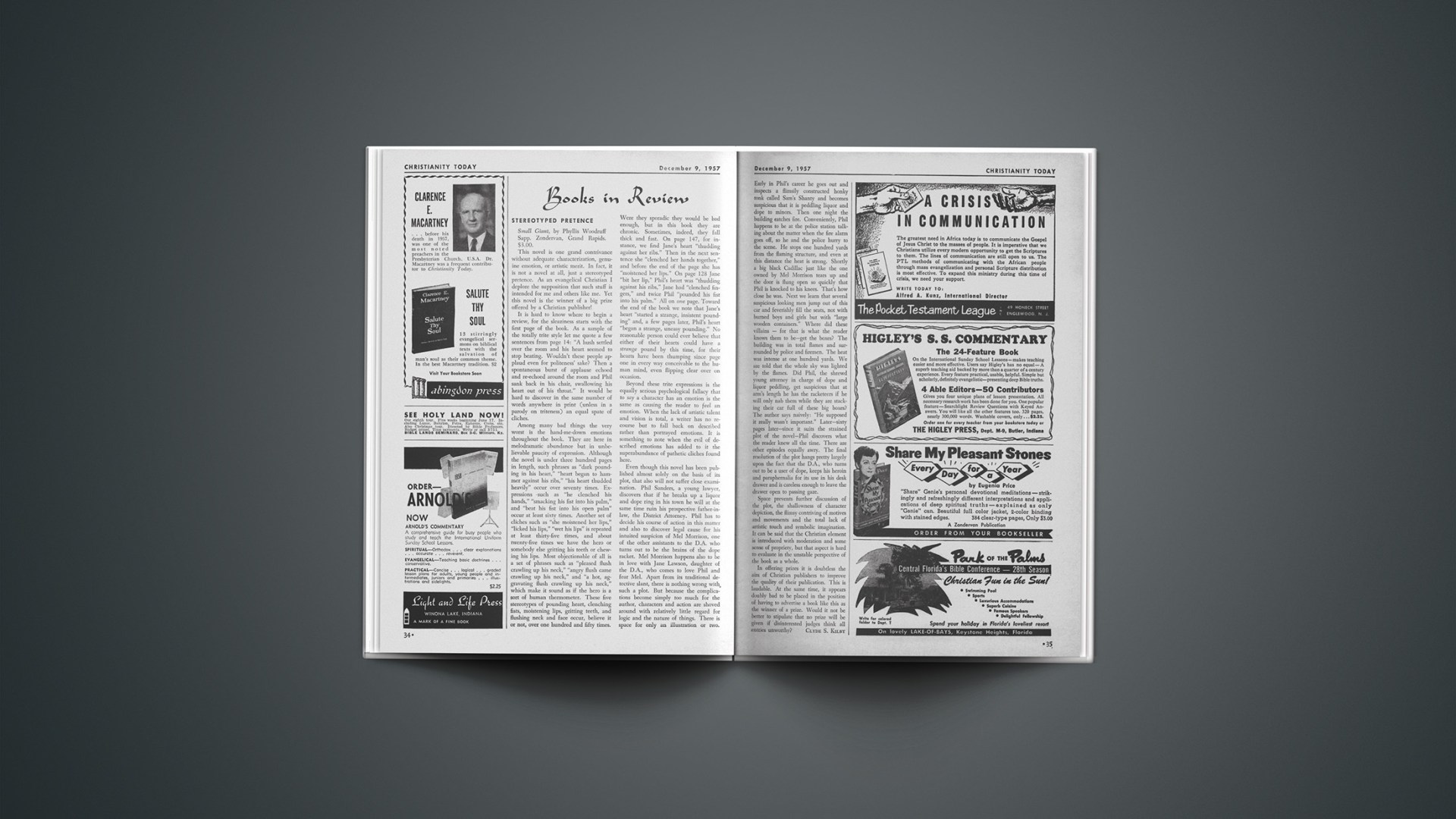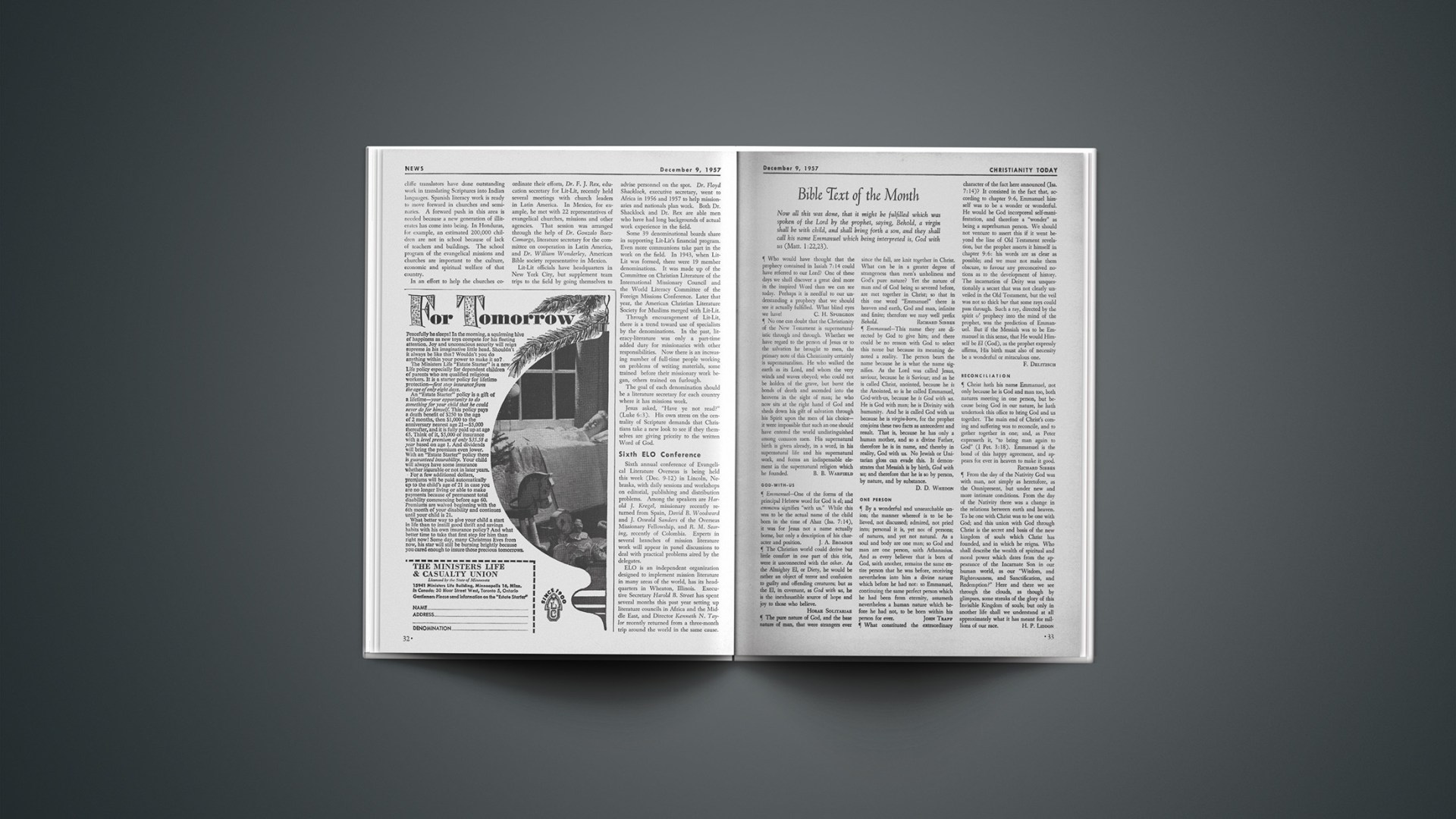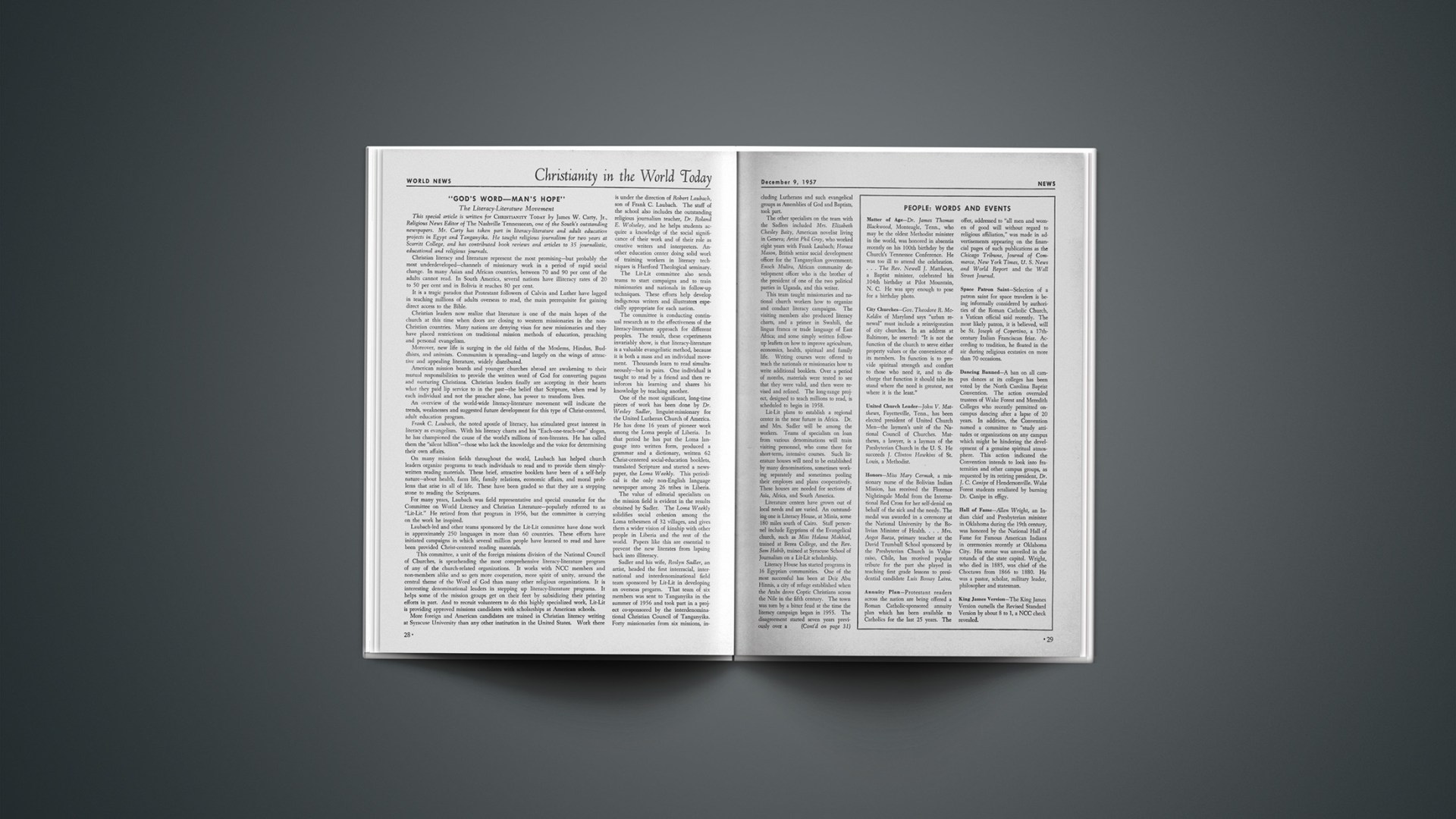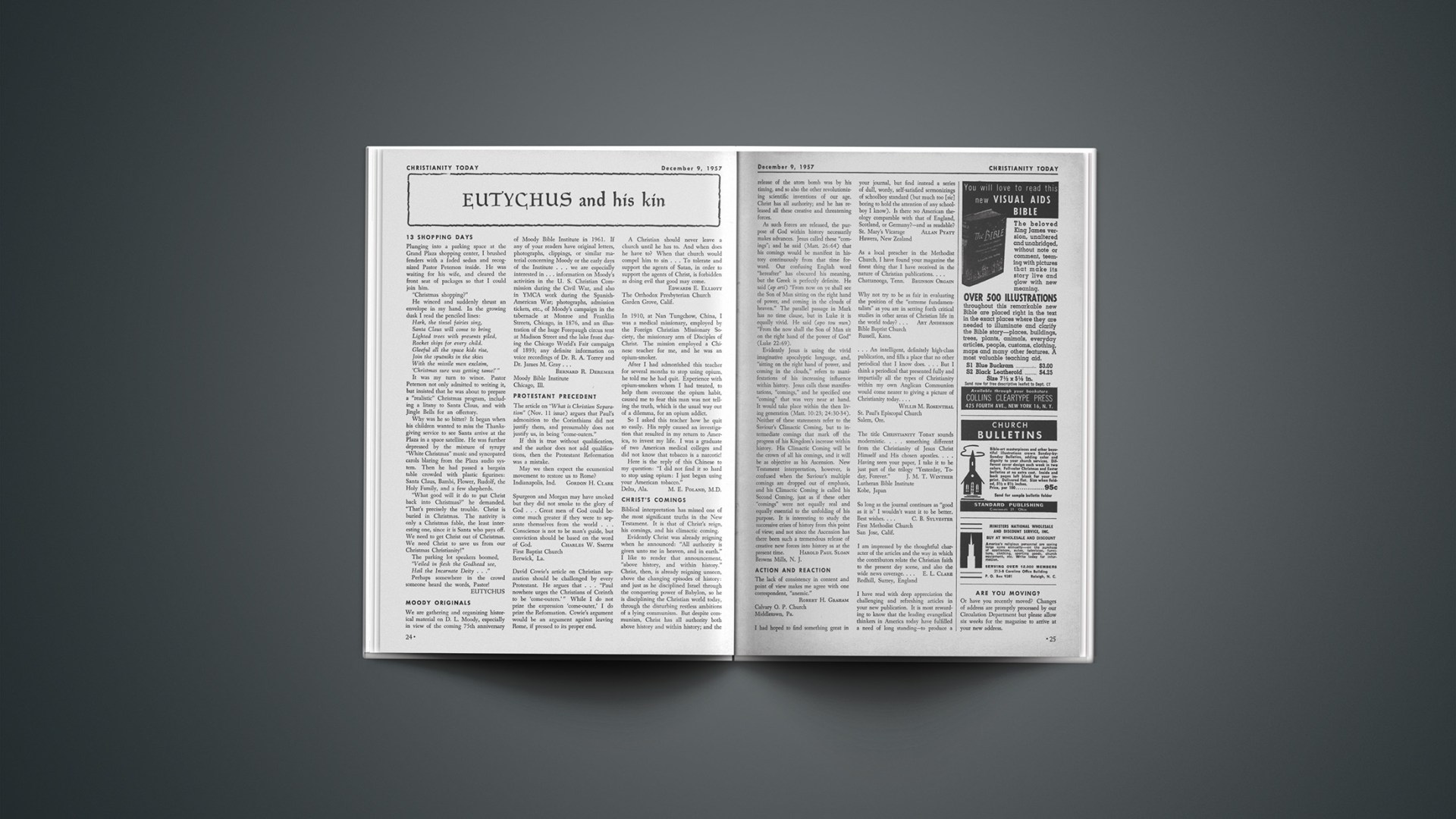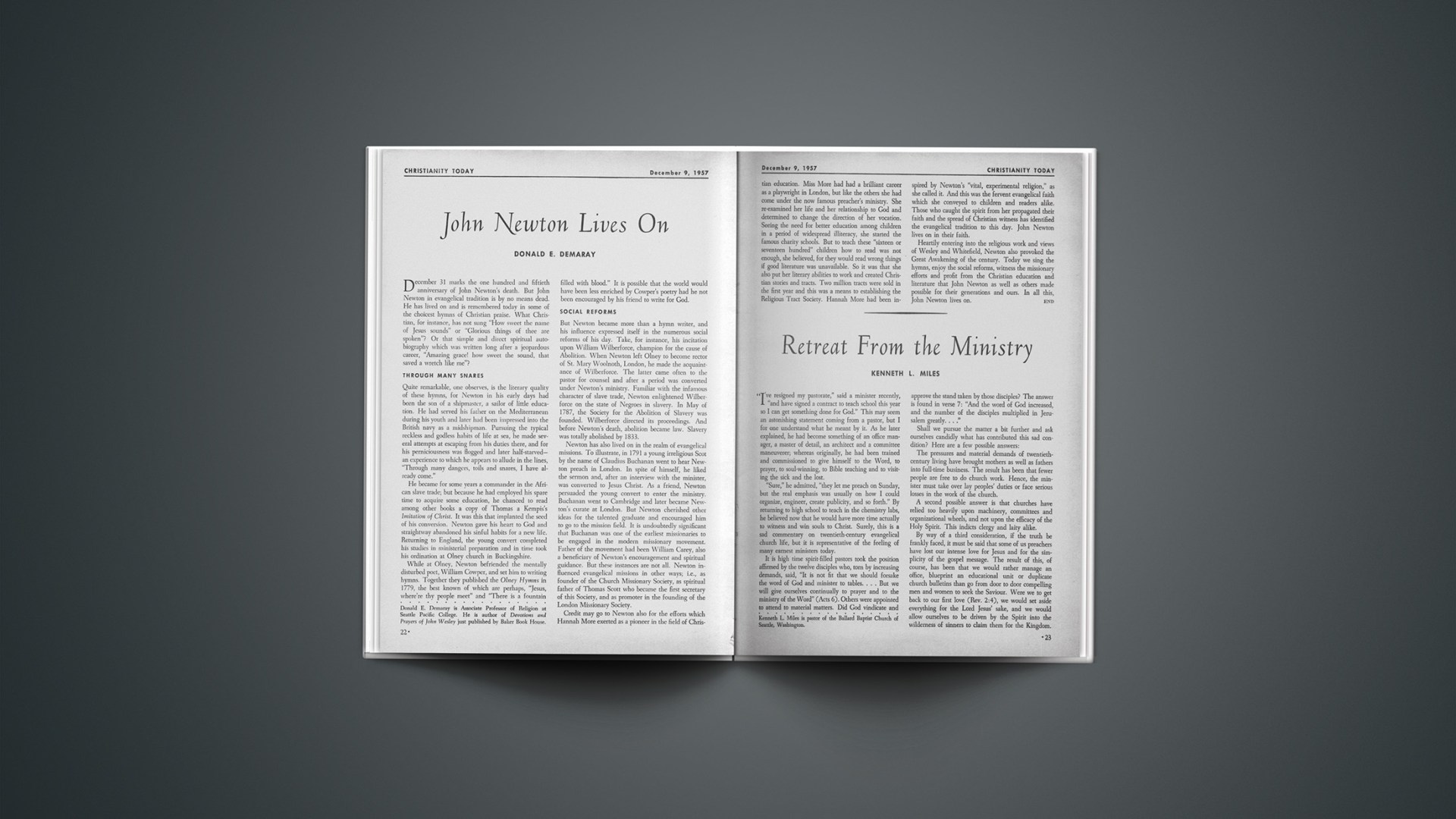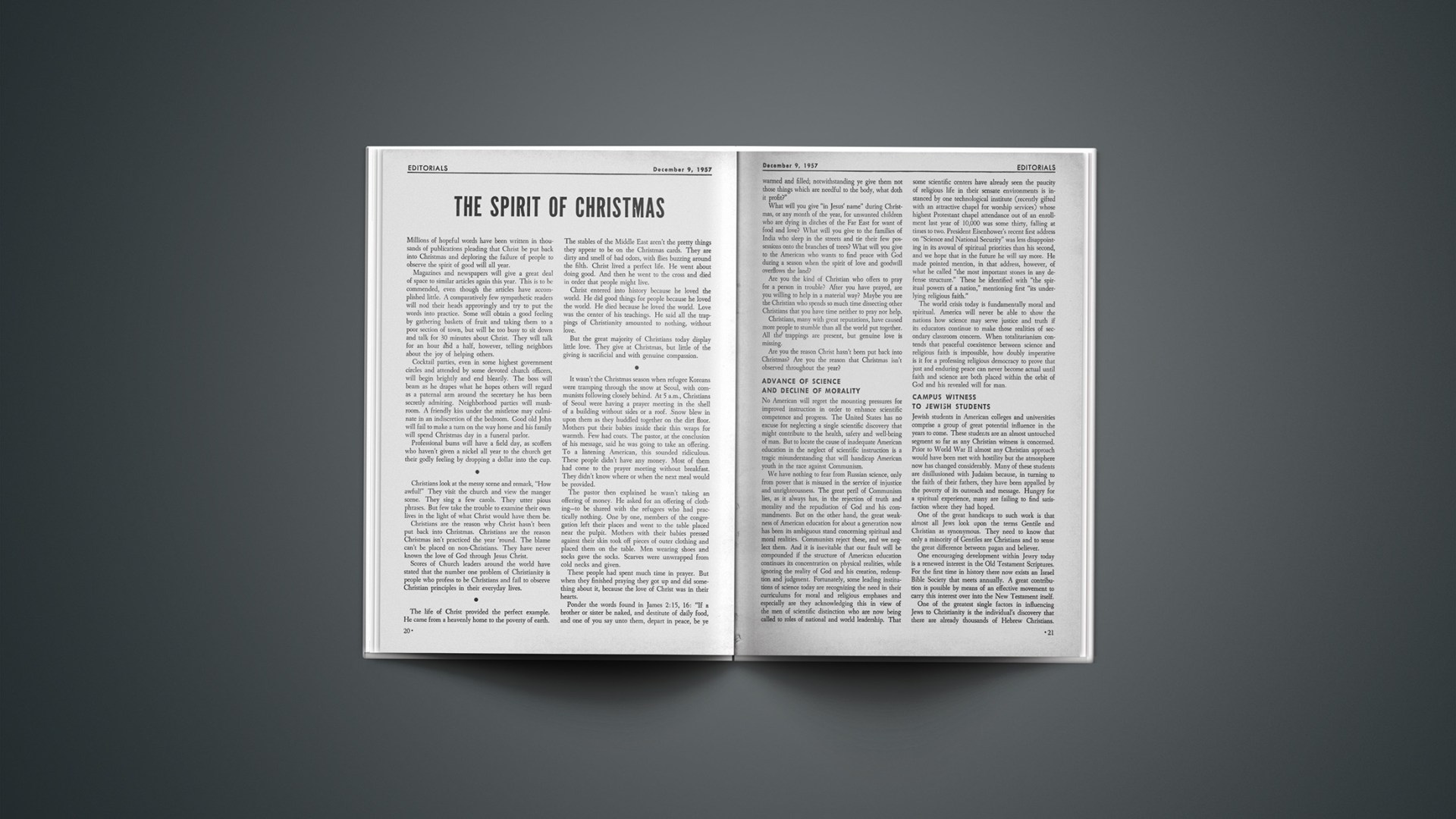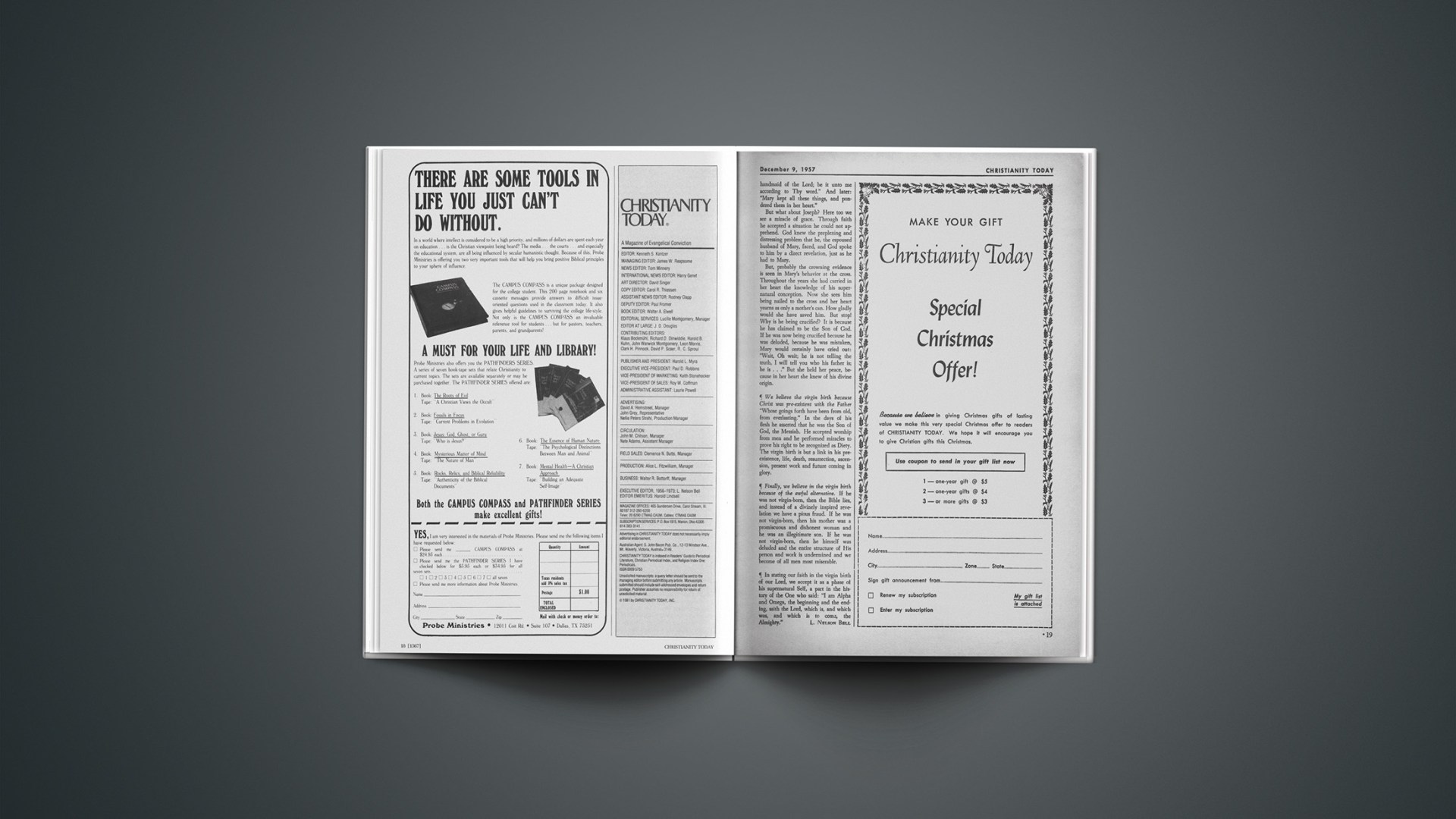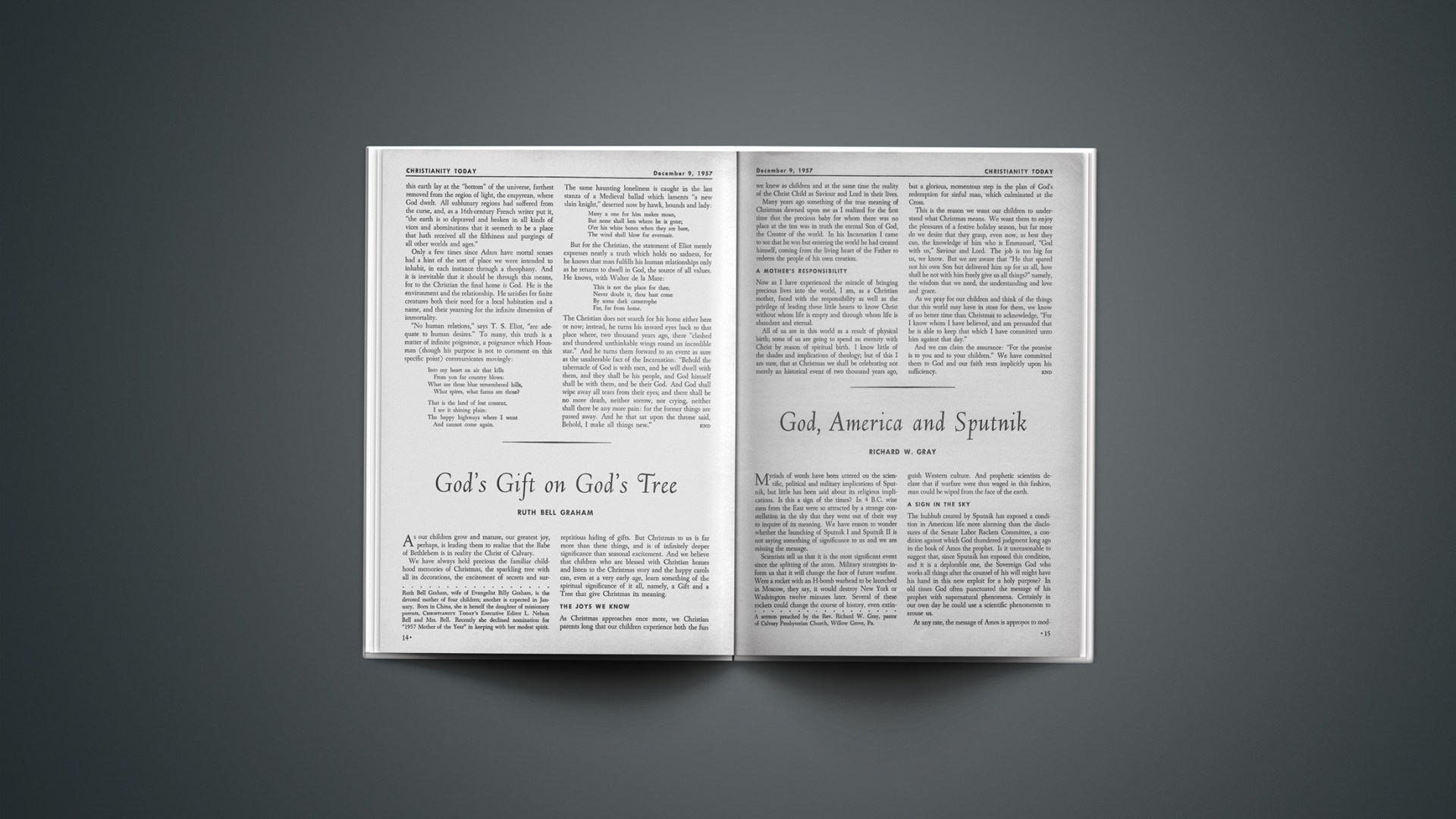Christmas is a very ancient feast in the history of the Christian Church. Although it does not go back to the New Testament, it does go a long way, and in most Christian communions it has become one of the strongest and most popular of traditions. There are no doubt many things about its celebration to which one may take exception—the commercialism, the drinking, the prevailing paganism—but it still possesses an inescapable basic Christian element, in that it keeps pointing men to the Incarnation of the Son of God for man’s redemption.
Even the old school liberals, like Scrooge, could hardly escape its influence. They had denatured Christ, historicized him, humanized and even liberalized him to such an extent that his picture in the New Testament was hardly recognizable, but still they celebrated Christmas. How they could stand up and sing:
Hark the herald angels sing,
Glory to the new horn king.…
or any of the other carols is difficult to understand, but they did, inconsistent though they may have been. Since Christ was only an example, a teacher, a great religious genius, Christmas really could mean very little that was truly spiritual. All they could do, therefore, was sentimentalize the manger, depriving it of its true meaning and preparing the way for our modern irrelevant festivities.
There has been a change in theological thinking during the last few decades, however, which seems to alter the picture somewhat. The world having been shaken by two world wars, having felt the searing hunger of the Depression ’30s, has taken a second look at itself—and at the Christ. Not quite so sure of its progress, its climb upwards and its eventual perfection, it has begun to ask itself if perhaps it has not made a mistake. Perhaps it does need a Saviour—not a human but a divine Saviour who can lift it out of the miry clay.
This was the note sounded by Karl Barth in the early ’20s and by many others since. Once again in theological circles it has become respectable to speak of God’s Revelation to man. Indeed, Christ is now accepted as the bearer of that Revelation, the Word of redemption and forgiveness. God has entered into history in the person of Christ, the Word of God. This is a very different point of view from that of the old school of liberals.
Indeed the advocates of this point of view—and they are now very numerous—go further, even talking of Christ as the Redeemer. His death and Resurrection come into the picture and are said to be the core of the new theologies. Indeed, one might think that the old idea of Christmas is tending to come back. Once more men can sing the carols which speak of the Son of God who has come to earth for man’s salvation. This should indeed be great cause for rejoicing.
And yet one should not rejoice too easily or too naively, for one finds that frequently Christmas really has not returned. As one examines the new views one often finds that there are certain things which are missing. The doctrine of the Virgin Birth is either silently omitted or denied, the historical reality of the Incarnation is clothed in an avalanche of words, making it difficult to know what is meant by the term, and only too frequently universalism is the end-product of this thinking, leaving one wondering at the need for Christ’s coming at all.
The fact of the matter is that while there is much said about Christ by the various brands of neo-orthodox theologians, Christmas really does not seem to mean very much more to them than it did to the old line liberals. Once again social reform and redemption are beginning to take the place of the gracious work of Christ in the individual, redemption again becoming something which relates primarily to this life. Christmas has not really risen out of the old liberal ashes.
It would seem that the only way to preserve the true meaning of Christmas is to take into account the whole Christ as presented in the New Testament. One cannot separate him into bits and pieces. One must realize that if he is indeed the Word of God, he is a totality which cannot be reduced to some human schematization but must be allowed to reveal himself and his work as he has to men.
Thus Christmas cannot be merely a sentimentalization of the manger of Bethlehem. It must involve all that Christ is and does, even the Cross itself, and his eventual return. When one grasps this fact, only then will one be able to have a “merry Christmas” in the word’s deepest sense.
This review of live spiritual and moral issues debated in the secular and religious press of the day is prepared successively for CHRISTIANITY TODAY by four evangelical scholars: Professor W. Stanford Reid of Canada, Professor G. C. Berkouwer of the Netherlands, Professor John H. Gerstner of the United States and Dr. Philip E. Hughes of England.



